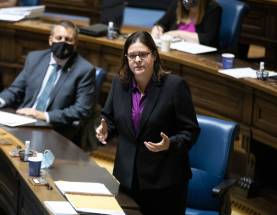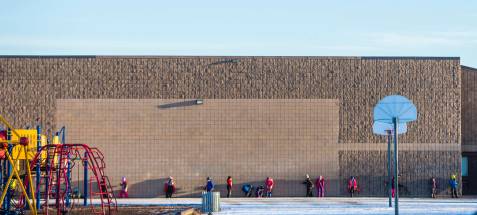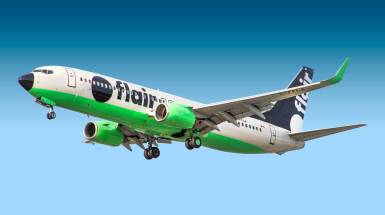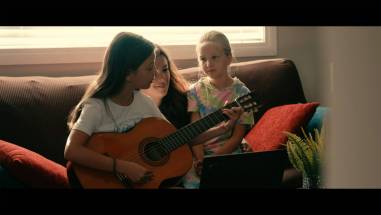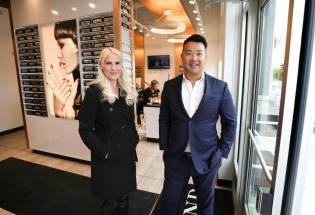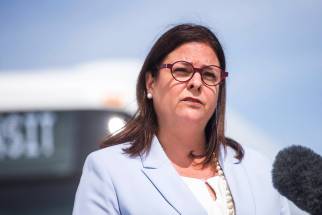The art of Refuge — finding and giving ‘Not only a tribute to the family, it is a tribute to the host family,’ Sophie Gaulin says of La Liberté’s first film
Read this article for free:
or
Already have an account? Log in here »
To continue reading, please subscribe:
Monthly Digital Subscription
$0 for the first 4 weeks*
- Enjoy unlimited reading on winnipegfreepress.com
- Read the E-Edition, our digital replica newspaper
- Access News Break, our award-winning app
- Play interactive puzzles
*No charge for 4 weeks then price increases to the regular rate of $19.00 plus GST every four weeks. Offer available to new and qualified returning subscribers only. Cancel any time.
Monthly Digital Subscription
$4.75/week*
- Enjoy unlimited reading on winnipegfreepress.com
- Read the E-Edition, our digital replica newspaper
- Access News Break, our award-winning app
- Play interactive puzzles
*Billed as $19 plus GST every four weeks. Cancel any time.
To continue reading, please subscribe:
Add Free Press access to your Brandon Sun subscription for only an additional
$1 for the first 4 weeks*
*Your next subscription payment will increase by $1.00 and you will be charged $16.99 plus GST for four weeks. After four weeks, your payment will increase to $23.99 plus GST every four weeks.
Read unlimited articles for free today:
or
Already have an account? Log in here »
Hey there, time traveller!
This article was published 28/09/2022 (1166 days ago), so information in it may no longer be current.
Flanked by two musicians, Anhelina Lavryk plaintively sings a Ukrainian tune.
JOHN WOODS / WINNIPEG FREE PRESS ‘Until the storm passes, I will be with you,’ Ukrainian refugee Anhelina Lavryk, 12, sings Tuesday at a screening of the documentary Refuge about her family’s escape to Winnipeg. 
“Until the storm passes, I will be with you,” her voice trembles Tuesday evening as she hits the high notes in The Sky, a song by Odyn v kanoe, an indie band from Lviv, Ukraine.
The song selection for Tuesday’s premiere of a film about their escape to Winnipeg was a fitting one. When the 12-year-old said goodbye to her father, Yurii, in May, she did not know when she would see him again.
The Lavryk family — father Yurii, mother Mariana and 8-year-old sister Zlata — once lived on the ninth floor of an apartment building in Ivano-Frankivsk, Western Ukraine.
When rockets started flying above following Russia’s invasion in February and they witnessed, from their window, the airport being bombed, they knew had to leave.
Yurii was forced to remain behind.
JOHN WOODS / WINNIPEG FREE PRESS People view the family’s reunion in Winnipeg at Tuesday’s premiere screening of La Liberté’s first documentary, Refuge, at St. Boniface Cathedral.
“It was the longest I had been away from them,” he said Tuesday, just a couple of weeks after being reunited with his family. “I missed everything about them… hugging them, kissing them, spending time with them. I did not know how to bear it. They are my main treasure.”
His wife, Mariana, and daughters, Anhelina and Zlata, fled for refuge in Canada, joining the ranks of more than 6.6 million refugees who were escaping the war-torn country.
After an arduous 26 hours of travel from Ukraine via Romania, Ireland and Toronto, the mother and daughters landed at James Armstrong Richardson International Airport in Winnipeg on May 3.
Their subsequent journey of starting a new life in a strange city is the subject of La Liberté’s first documentary, Refuge, which premiered Tuesday at a private screening at St. Boniface Cathedral.
It now airs on the Winnipeg-based French newspaper’s website, la-liberte.ca.
The 26-minute film, directed by Rémi Chevalier, is a tender and sensitive portrayal of the first five months of their lives here as mother and children become accustomed to a starkly different culture and way of life.
The trio keep a fragile hold on their present while still bound to their home country, making it a point to speak to Yurii every day.
Each frame is steeped in emotion as Chevalier portrays how the family slowly bloom in Winnipeg, thanks to the help of the community they are now a part of.
“The longest was one week for a work trip. This was the longest time we were not together. It was difficult.”–Mariana
“It’s been kind of seamless, really,” Chevalier says of the film-making process.
“We tried to be as invisible as possible because we know they were going through a lot. We tried to be friends and to understand where they were coming from.”
“We have never been separated for a long period,” Mariana says. “The longest was one week for a work trip. This was the longest time we were not together. It was difficult.”
The children, especially Zlata, missed their father. “She would cry every night, ‘I want to go back on a plane, I want to see my father. Where is my father?’” Mariana says.
After an emotionally charged reunion in Winnipeg in early September, the family are together after Yurii was granted special permission to join them.
SUPPLIED The children, especially Zlata, missed their father, says mother Mariana Lavryk. "She would cry every night, 'I want to go back on a plane, I want to see my father. Where is my father?'"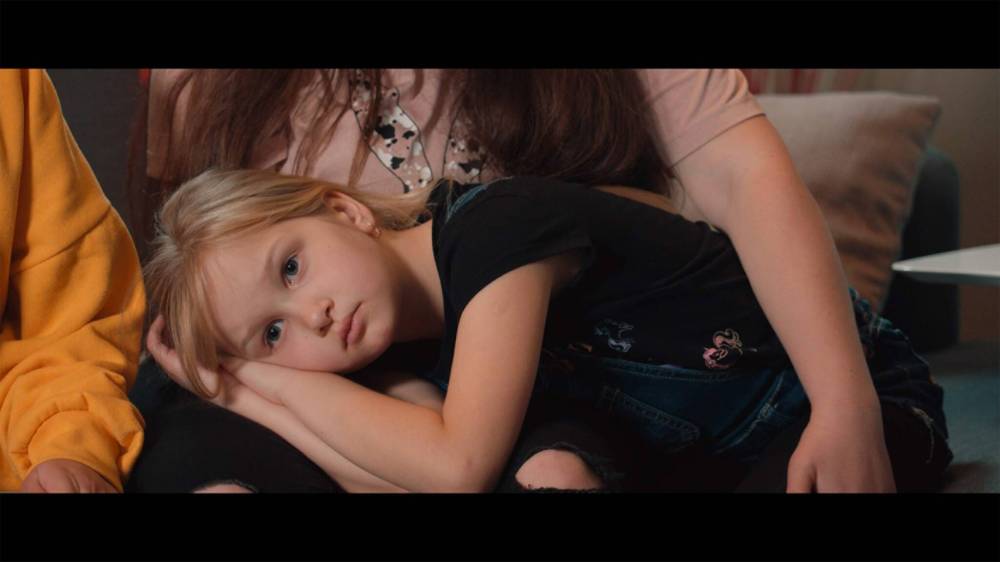
“I didn’t know for the longest time when I would see them again,” Yurii says. “This (being in Canada) is totally unexpected. I did not know this was possible.”
Sophie Gaulin, executive director and editor-in-chief of La Liberté, conceived the documentary. She wanted to show the solidarity Canadians have shown to Ukrainians.
“This war unfortunately is part of our daily life today,” she says. “News at some point becomes history and I wanted to document that.”
Gaulin concedes it was not an easy request to make of the family, or of the couple who offered to shelter Mariana and her children.
“It was difficult to ask, it was not their priority, it was their priority to be safe, not to become part of the documentary,” Gaulin says. “But thankfully they understood, and so did the couple who opened their home. They understood why it was important to show this story.”
“We both realized that we would be both open to welcoming a family into our home.”–Marc Marion
Marc Marion and his wife, Tanya, were perturbed by daily news of the war in Ukraine. After a conversation they decided to offer shelter to anyone who needed refuge.
“We both realized that we would be both open to welcoming a family into our home. We don’t have kids, we have some spare bedrooms at home so if we can help out by welcoming a family over then let’s do it,” Marion recalls.
Marion’s legal assistant Slavna, of Ukrainian descent herself, had previously been in touch with the Lavryk family. She was the conduit, and eventually became the film’s translator, helping the film crew navigate the language barriers.
Today, the children are enrolled in school and are slowly becoming accustomed to the way of life here.
Mariana, a trained dermatologist in Ukraine, now works as an aesthetician at Ten Spa at the Fort Garry Hotel and Yurii started a job three days ago connecting Ukrainians in Ukraine, and in Canada, with job placements in Manitoba.
SUPPLIED Big sister Anhelina Lavryk says she’s seeing changes in Zlata. “My sister’s English is so much better than before she came here and she has made a lot of friends also.’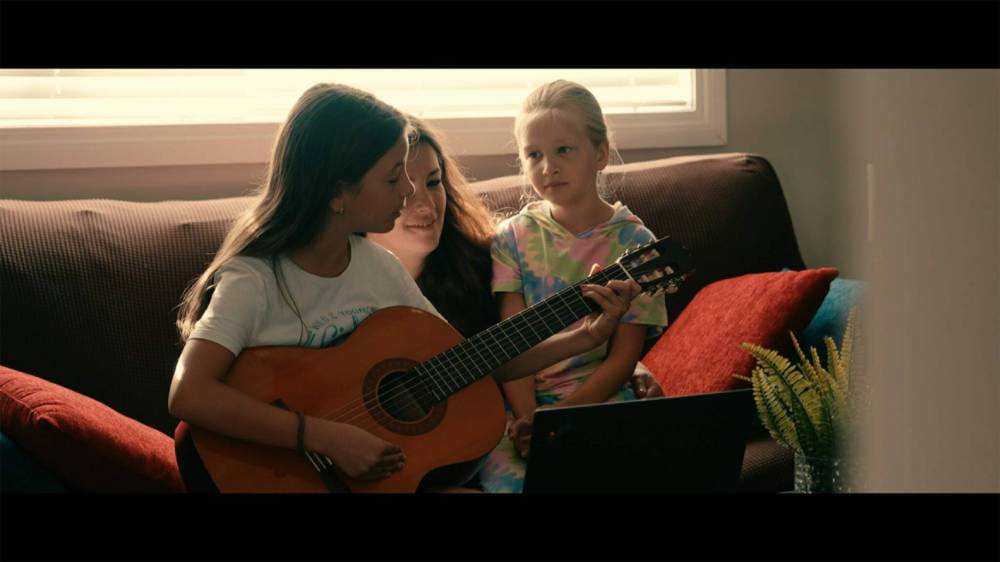
“I like being here, but it is completely different,” Anhelina says. “A lot of new people to get used to, a lot of new buildings, the city is different. But is it very beautiful. I live beside the river and in the evenings I can walk down there. I have a lot of friends, a lot of classmates who are my neighbours.”
Zlata is also doing well, Anhelina shares.
“My sister’s English is so much better than before she came here and she has made a lot of friends also. Everyone wants to help us.”
Gaulin is inspired by the family.
“It’s so amazing to see this family evolve. The girls are so resilient, they are an inspiration for me. We followed them for five months and we were able to see what their concerns were and how bad they were missing their dad and husband and now how well they are doing. We need people to see this.
“But we also need to portray people like Marc and Tanya, full of humility who activated their network and helped so much. Look at what happens when you do this — look at the change you make. This film is not only a tribute to the family, it is a tribute to the host family.”
av.kitching@freepress.mb.ca

Our newsroom depends on a growing audience of readers to power our journalism. If you are not a paid reader, please consider becoming a subscriber.
Our newsroom depends on its audience of readers to power our journalism. Thank you for your support.


